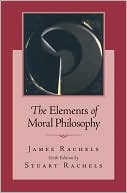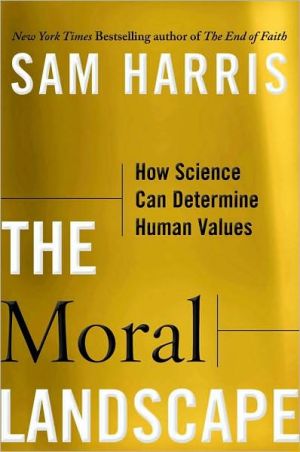The Elements of Moral Philosophy
Search in google:
Firmly established as the standard text for undergraduate courses in ethics, this concise, lively book takes the reader on an in-depth tour of the major moral theories, always illustrating abstract ideas with concrete examples. Separate, self-contained chapters examine such theories as Egoism, Kantianism, Utilitarianism, Virtue Ethics, and the Social Contract Theory. Through this conceptual framework, the text addresses timely and provocative issues, including abortion, racism, euthanasia, poverty, marijuana, homosexuality, the death penalty, and vegetarianism. The text's versatility makes it an ideal choice for use not only in ethical theory courses, but also in applied ethics courses of all kinds.
PrefaceAbout the Second Edition1What is Morality?11.1The Problem of Definition1.2An Example of Moral Reasoning: Baby Jane Doe1.3Reason and Impartiality1.4The Minimum Conception of Morality2The Challenge of Cultural Relativism152.1How Different Cultures Have Different Moral Codes2.2Cultural Relativism2.3The Cultural Differences Argument2.4The Consequences of Taking Cultural Relativism Seriously2.5Why There Is Less Disagreement Than It Seems2.6How All Cultures Have Some Values in Common2.7What Can Be Learned from Cultural Relativism3Subjectivism in Ethics303.1The Basic Idea of Ethical Subjectivism3.2The Evolution of the Theory3.3The First Stage: Simple Subjectivism3.4The Second Stage: Emotivism3.5Emotivism, Reason, and "Moral Facts"3.6The Example of Homosexuality4Does Morality Depend on Religion?444.1The Presumed Connection Between Morality and Religion4.2The Divine Command Theory4.3The Theory of Natural Law4.4Christianity and the Problem of Abortion5Psychological Egoism625.1Is Unselfishness Possible?5.2The Strategy of Reinterpreting Motives5.3Two Arguments in Favor of Psychological Egoism5.4Clearing Away Some Confusions5.5The Deepest Error in Psychological Egoism6Ethical Egoism756.1Is There a Duty to Contribute for Famine Relief?6.2Three Arguments in Favor of Ethical Egoism6.3Three Arguments Against Ethical Egoism7The Utilitarian Approach907.1The Revolution in Ethics7.2First Example: Euthanasia7.3Second Example: Nonhuman Animals8The Debate Over Utilitarianism1028.1The Resilience of the Theory8.2Is Happiness the Only Thing That Matters?8.3Are Consequences All That Matter?8.4The Defense of Utilitarianism8.5What Is Correct and What Is Incorrect in Utilitarianism9Are There Absolute Moral Rules?1179.1Kant and The Categorical Imperative9.2Absolute Rules and the Duty Not to Lie9.3Conflicts Between Rules9.4Another Look at Kant's Basic Idea10Kant and Respect for Persons12710.1The Idea of "Human Dignity"10.2Retribution and Utility in the Theory of Punishment10.3Kant's Retributivism11The Idea of a Social Contract13911.1Hobbes's Argument11.2The Prisoner's Dilemma11.3Some Advantages of the Social Contract Theory of Morals11.4The Problem of Civil Disobedience11.5Difficulties for the Theory12The Ethics of Virtue15912.1The Ethics of Virtue and the Ethics of Right Action12.2Should We Return to the Ethics of Virtue?12.3The Virtues12.4Some Advantages of Virtue Ethics12.5The Incompleteness of Virtue Ethics13What Would a Satisfactory Moral Theory Be Like?18013.1Morality Without Hubris13.2The Moral Community13.3Justice and FairnessSuggestions for Further Reading194Notes on Sources202Index207








